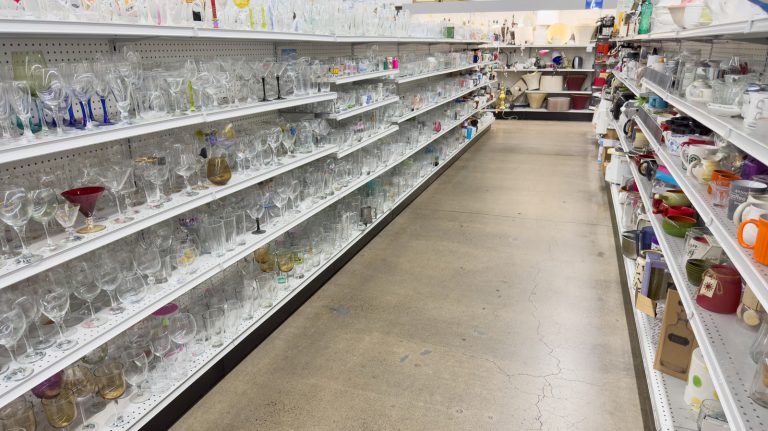
Many experts claim that compost tea is the key to a vibrant, pest-free garden. Garden guru Martha Stewart highlights that this liquid derived from your compost pile can also significantly benefit fruit trees. Beyond enhancing general plant health, it may also lead to more abundant harvests. Rhonda Sherman, director of North Carolina State University’s Compost Learning Lab, explained to MarthaStewart.com, “If you’re growing a vegetable, fruit, or a flowering ornamental, for example, you’ll notice more of those fruits, vegetables, and flowers when using this tea.” This is due to its ability to foster plant-enhancing microorganisms. Stewart advises home gardeners to start with a non-aerated tea-making method, requiring only clean water, finished compost, and a 5-gallon bucket.
The initial step in preparing compost tea is ensuring your compost is of high quality. Stewart offers several tips for those starting their first compost bins, such as incorporating carbon-rich brown materials and nitrogen-rich green materials. A balanced volume of browns and greens is a good starting point, though some experts recommend a 2:1 ratio of browns to greens over time. Browns include dried leaves, wood chips, and other decomposed plant matter, while greens consist of freshly clipped grass and plant-based kitchen scraps like banana peels and vegetable skins. Proper aeration of the compost pile is crucial. A rotating tumbler, such as the Hourleey 43-gallon dual-chamber tumbling compost bin, simplifies this task. Without sufficient oxygen, microorganisms in the pile can cause a foul odor. Aeration also aids efficient decomposition. Finished compost should appear dark brown, have a soil-like smell, and a crumbly texture.
Ways to Brew Compost Tea
To create non-aerated compost tea, you’ll need 1 to 2 cups of compost per gallon of water. Using a mesh sack to hold the compost can minimize cleanup. Ensure your water is chlorine-free by letting tap water sit for a day before use. This allows the chlorine to evaporate. Then, place your compost in the sack and submerge it in your 5-gallon bucket. The sack acts as your teabag, and the bucket as your teacup. Pour room-temperature water over the sack and keep the bucket shielded from sunlight and heat as the tea brews. Stir the contents daily for a week. After a week, your tea is ready.
For a quicker method, try the aerated version, which takes two days. It mirrors the non-aerated method but includes an aquarium air pump in the bucket to hasten microorganism growth. The AquaMiracle aquarium air pump bubbler aerator is a suitable choice.
When preparing compost tea for her potted citrus trees, Martha Stewart utilizes a high-end brewing system. To enjoy its benefits affordably, incorporate fish and seaweed fertilizers as Stewart does. If using about 8 cups of compost with 4 gallons of water, add 2 cups of 2-4-1 fertilizer and 2 cups of 2-3-1 fertilizer. Neptune’s Harvest 2-4-1 fish fertilizer and 2-3-1 fish and seaweed fertilizer are reliable options. Use aerated compost tea immediately after turning off the air pump to maintain the microbe population.
Watering Your Trees with Compost Tea
Compost tea is convenient as it allows you to water your fruit trees directly with it, eliminating the need to mix it into the soil. This saves time and effort. To encourage a fruit tree’s growth, pour compost tea around its base, quickly delivering nutrients to its roots. If your focus is disease and pest prevention, spray the tea onto the tree’s foliage. A backpack sprayer like the SideKing 3.2-gallon rechargeable battery-powered sprayer is useful for multiple trees. For potted fruit trees, a watering can or spray bottle will suffice.
Martha Stewart suggests applying compost tea to fruit trees every week or two, integrating it into your regular watering schedule to avoid overwatering. Overwatering can lead to root rot and hinder oxygen absorption. It’s crucial to use clean containers for brewing and applying compost tea to prevent harmful microbes from multiplying in subsequent batches, which could pose health risks to you and your trees.
If home composting isn’t an option, purchasing a small amount for tea brewing is viable. Gantessa Stone premium organic screened compost is available in manageable 2-pound bags. Alternatively, you can buy finished compost tea such as Planet Earth natural compost tea blend, ensuring to dilute it as per package directions. Another DIY fertilizer tea involves soaking grass clippings in water for several days, then using the liquid to nourish your garden.






